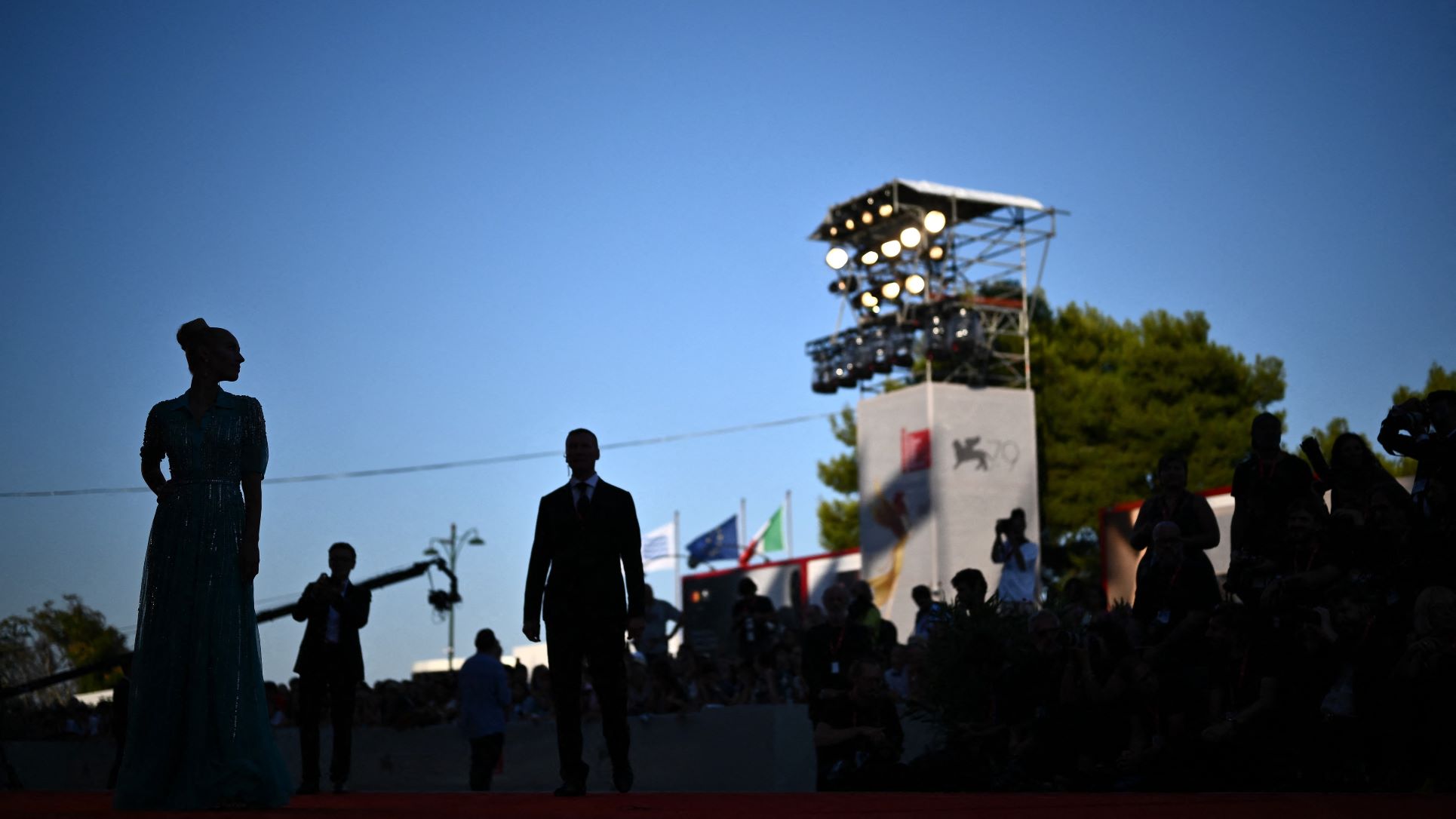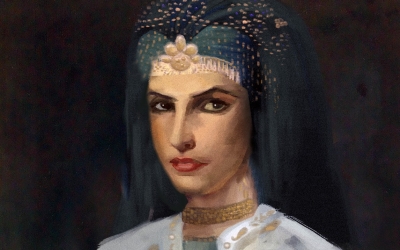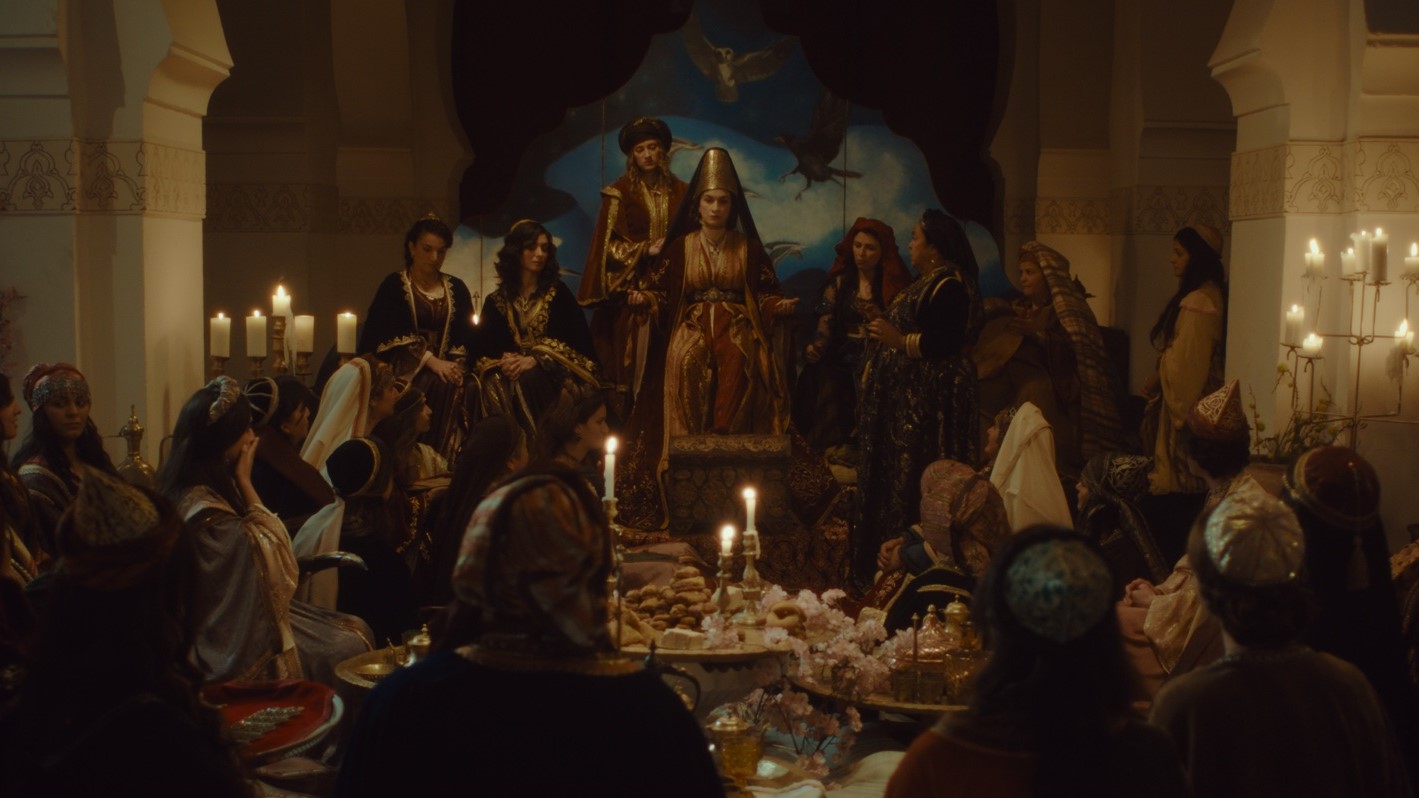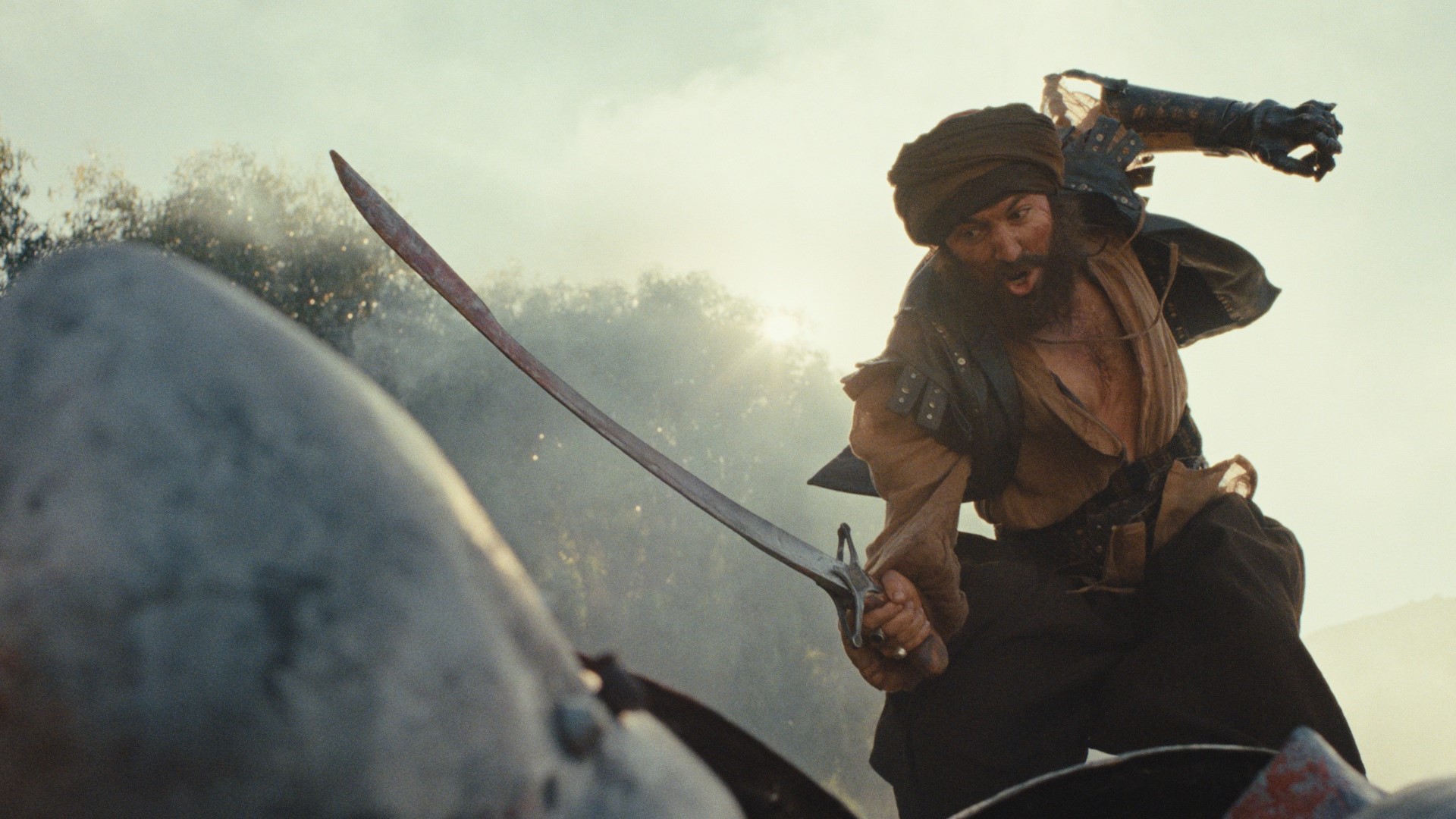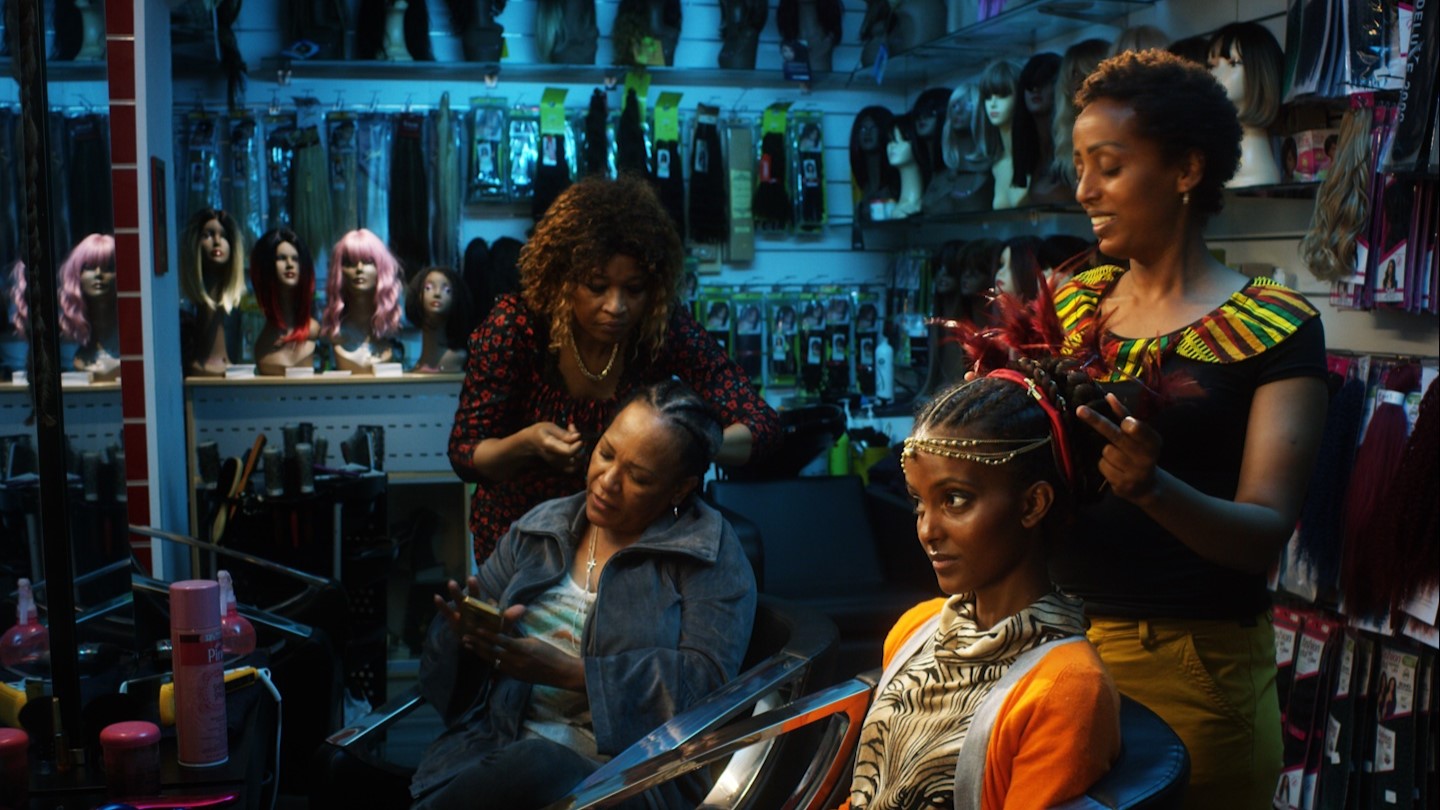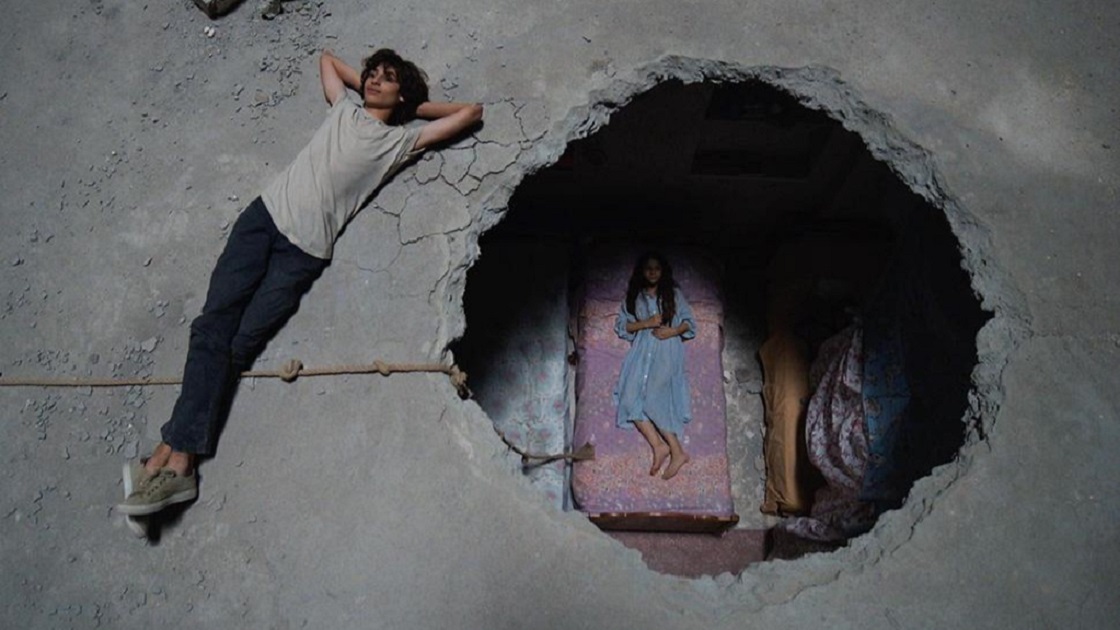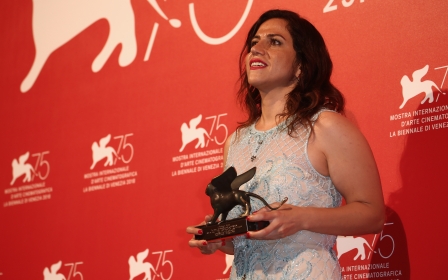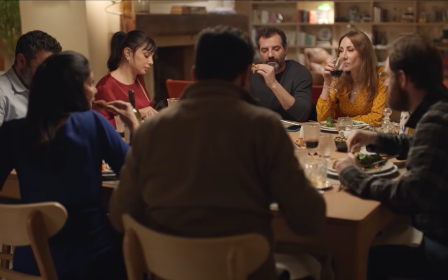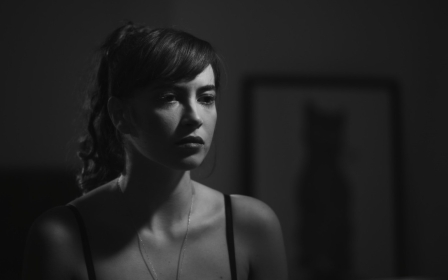Venice Film Festival 2022: An ambitious but patchy start for Middle Eastern cinema
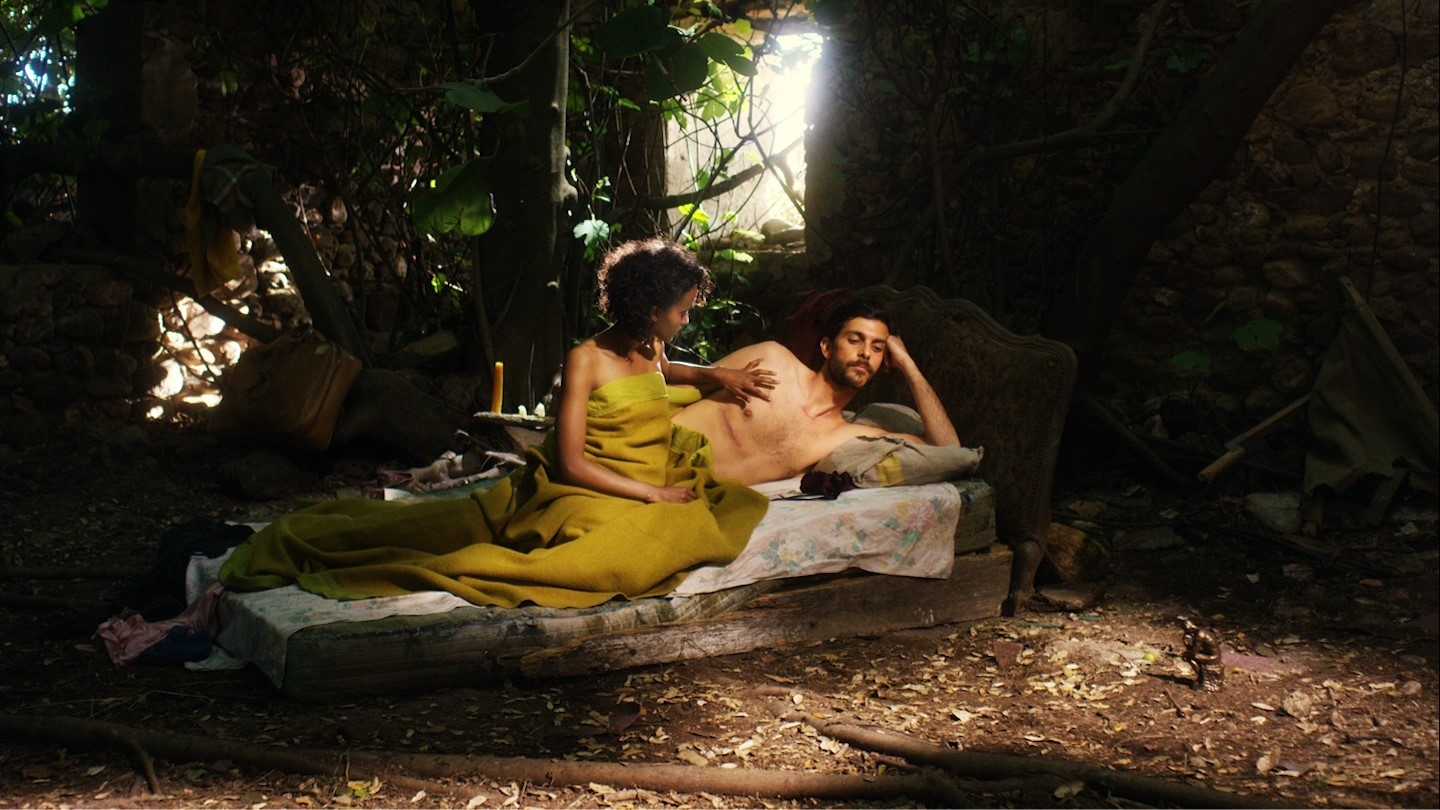
After two years of significantly reduced industry attendance, the Venice Film Festival is back with its most high-profile selection since the pre-pandemic era. With all Covid-19 restrictions lifted, the 79th edition of the festival has been a far less anxious affair than the past two years.
Venice has unabashedly been a major launchpad for the awards season over the past few years, enjoying a warmer relationship with Hollywood than its biggest rival, Cannes.
Some of the biggest Oscar contenders and winners premiered in Venice over the past few years: Dune, Spencer, Quo Vadis, Aida? and the best picture winner, Nomadland.
More than Cannes, Venice is all about the razzle-dazzle, and this year is no different. The 2022 slate includes Noah Baumbach's Don DeLillo adaptation White Noise starring Adam Driver and Greta Gerwig; Darren Aronofsky’s The Whale starring an unrecognisable Brendan Fraser; and Alejandro G Inarritu’s Bardo, The Revenant and Birdman director’s first film in his homeland Mexico since 2000’s Amores perros.
Most of the high-profile competition films will not struggle to find global distribution, but there are lingering question marks about the fate of an indie film market that is yet to recover from the colossal blow of the pandemic.
New MEE newsletter: Jerusalem Dispatch
Sign up to get the latest insights and analysis on Israel-Palestine, alongside Turkey Unpacked and other MEE newsletters
Blockbusters have attracted people back to cinemas this summer, but speciality box office has failed to bounce back. More and more non-American films are struggling to recoup their budgets and the fate of the indie/art-house sector has never been as precarious as it is now.
Theatrical releases used to represent the main source of revenues for producers and filmmakers alike, with the sold streaming rights regarded as the cherry on the cake. In the post-pandemic era, that cake no longer exists, as a major festival director told me recently, and streaming proceeds are never sufficient for filmmakers to sustain a living.
Inflation and rising costs of living worldwide have led to extensive cutbacks that partially led to the bursting of the streaming bubble this year. Netflix has some of Venice’s biggest titles - Blonde, White Noise and Bardo - but it’s no longer the invincible force it was a year ago.
Mubi, HBO Max, Shahid, OSN and other streaming platforms continue to acquire content, but the age of spending sprees seems to be over as competition between smaller films intensifies.
Middle Eastern films in particular have faced mounting difficulties, with the reduction in state funding across the region (except for Saudi Arabia, the new powerhouse) and the impermanence of grants offered by festivals.
For regional filmmakers, a slot in a major festival like Venice represents a unique chance for launching a sustainable career. Political urgency may have drawn audiences to particular Middle Eastern films in the past. Now, though, in these economically challenging times, bold visions are mandatory for smaller films to truly stand out in a market largely dominated by established auteurs.
Such visions defined the near-flawless Arab Cannes selection this year, whetting our appetite for more to come. But Venice has always played second fiddle to Cannes when it comes to snatching the best film productions from the region, and this edition appears to be no different so far.
Lavish but lacking
The first, and possibly biggest, Arab disappointment of the fest so far is The Last Queen, the first narrative feature by award-winning Algerian filmmaker Damien Ounouri, which he co-directed with his leading actress and wife, Adila Bendimerad.
Set during a short-lived Spanish occupation of parts of Algeria during the 16th century, Bendimerad plays the titular queen, Zaphira, the wife of Algerian king Salim Toumi who forges an alliance with notorious pirate Barbarossa (Dali Benssalah) to liberate the occupied harbour.
King Salim gets betrayed by Barbarossa who assassinates him and seizes control of the kingdom. Desired by Barbarossa, Zaphira becomes the kingdom’s last hope in leading a rebellion against the pirate.
Over the past decade, Ounouri has established himself as one of the most exciting Algerian filmmakers. His 2012 documentary, Fidai, daringly questioned the moral sacrifices of fighting for one’s country. In a gripping portrait, a former FLN fighter is haunted by his past during the War of Independence.
Ounouri’s 2016 Cannes nominated medium-length film Kindil El Bahr is a feminist revenge fantasy about a young mother who is resurrected as a violent mermaid after she’s assaulted and killed by a group of men.
Alas, none of the invention and intellectual rigour can be traced in The Last Queen, a cold picture with plenty of oomph and little substance. There are no grave missteps in the production: it’s a handsome-looking epic abundant with twists and turns in a drama that flows well, but that’s about it really.
The film's underlying objective is pinpointing the deliberately forgotten role of women in resistance - be it in ancient times or during the War of Independence. Exploring a little-known period in Algeria’s history also doubles as a rebuff of France’s insistence that Algeria is a land without a story or a nation - that Algeria did not exist before the French claimed it.
The Last Queen attempts to give Algeria its lost myths in other words, but its didactic slant leaves no room for contemplation as the message drowns in the sturdy mechanisms of the plot.
The best period pics of the past few years - from The Favourite to Godland - struck a chord with the audience for subverting genre tropes while establishing a thematic link with contemporary concerns. Ounouri and Bendimerad never venture to replicate this, bafflingly playing it straight without trying to deepen a story that amounts to little more than an illustrated history lesson.
The action sequences also lack invention, containing the kind of early noughties effects that look dated and humdrum by now. But it's the lack of thematic complexity and uninvolved characterisation that keeps the viewer at arm’s length. Its story never manages to engage while the broad brushstrokes eliminate any pathos. There’s no subtext in here, and the film is difficult to savour on a purely storytelling level.
In a recent interview, Ounouri explained that the desire to realise this project stems from an exhaustion with social issues. It’s a laudable intention, wanting to create “something with adventure and emotion” as he put it.
Ounouri is a remarkable filmmaker but The Last Queen is not the great demonstration of his talents critics hoped it would be.
Love unrequited
More amiable, if equally frosty, is Dirty Difficult Dangerous, Lebanese Wissam Charaf’s follow-up to his 2016 debut Tombe du ciel which bowed at Cannes’ Acid section.
Set in present-day Beirut, Charaf’s latest creation is a star-crossed romance between a Syrian refugee Ahmed (Ziad Jallad) and an Ethiopian housemaid Mehdia (Clara Couturet).
Treated with indifference by a zombie-like society and scorned upon by their families, the pair strive to find a way out of the eternal purgatory of Beirut. Amidst that struggle, Ahmed realises that his body is overflowing with shrapnel, an affliction that enhances the surrealism of his life.
Dirty is a strange beast: a melodrama conceived as a deadpan comedy, peppered with social commentary. Despite the palpable passion on display, the film doesn’t succeed on any of those fronts. The deadpan comedy - harking to Elia Suleiman and Finnish comedy master Aki Kaurismaki - fails to sit well with the melodrama. In the midst of this clash, the threadbare social commentary gets lost in the mix.
Separately, each of those elements is lacking. The comedy is neither surreal or funny enough and the melodrama fails to diffuse the desired emotional charge - a shortcoming not helped by the lack of chemistry between the two leads.
The social commentary, on the other hand, comes off as rudimentary: showing the familiar and stating the obvious. There are some breathtaking shots here, which demonstrate the potential of the project. At the end though, Dirty Difficult Dangerous emerges as nothing more than an outline for an intriguing concept not fully realised.
Lives too ordinary
Less frosty and far less ambitious is Nezouh, the hotly anticipated sophomore feature from Syrian filmmaker Soudade Kaadan whose last picture, The Day I Lost My Shadow, made a big splash at Venice when it won the best debut feature award in 2018.
Whilst her debut used understated elements of fantasy to evoke the invisible danger and sense of entrapment that defined the early years of the Syrian war, her new outing uses a more straightforward and pedestrian approach to dealing with the conflict.
Fourteen-year-old Zeina (Hala Zein) lives with her parents (Kinda Alloush and Samer al Masri) in a collapsing house in an unnamed deserted Syrian town. The father refuses to abandon their home, while the mother yearns for a fresh start in a new country.
'Take Syria out of the equation and what we end up with is a formulaic, toothless domestic drama'
Dealing with puberty in a place that is anything but normal becomes all the more confusing for Zeina, and the experience is only tapered by her budding friendship with the boy next door (Nizar Alani).
The mother’s desire to leave is sharpened when her husband agrees to marry their daughter to a young fighter, propelling her to take their destiny into her own hands.
Part coming-of-age story, part portrait of a woman breaking away from patriarchy, Nezouh is another familiar tale of a family battered by the war: a passionate, if predictable, plea for the right to lead normal lives away from abiding destruction.
Sincere entreaties, however, do not necessarily make for convincing or compelling storytelling. Take Syria out of the equation and what we end up with is a formulaic, toothless domestic drama that over-relies on humour to obscure the script’s plainness.
The film is punctuated with moments of affecting lyricism and magic realism, but the script avoids tackling the bigger, more complex, topics of the day: the role of class and religion in informing people’s decision to leave; the sectarian division partially responsible for the failure of the revolution; and, most importantly, the new Syrian reality in the wake of the West’s looming acceptance, or rather tolerance, of the Assad regime.
Nezouh is too unenterprising, too exasperatingly modest, to inject a new-found urgency to a subject that has been milked the past 11 years.
Rather than exploring a new unmapped facet of the war, Kaadan offers us the same narrative we’ve been seeing over countless fictions and documentaries since 2011.
In one of the earlier scenes of the film, the mother says: “Is there anyone left in here?”
There are millions who stayed behind of course, but cinema has shown an unjustified indifference to this population and one cannot help but wonder what lies beyond the ruins.
It is imperative to continue exposing Assad's crimes and continue telling Syrian stories, but not in such a derivative fashion. Nezouh feels indistinguishable from the films that came before it. The last part of the film is particularly disingenuous with a contrived happy ending culled from hammy Egyptian operas, puzzlingly turning against its proposed empowering feminist discourse.
In a recent interview, Kaadan said that “fiction allows me to express what is happening”, yet her film barely shows what’s happening now in Syria.
Nezouh may have been appreciated sheerly on the strength of its subject, yet not for its artistry, six or seven years ago, but not today, not with the new Syrian reality that filmmakers remain oblivious, or perhaps negligent, towards.
The 79th Venice Film festival runs between 31 August 31 and 10 September.
This article is available in French on Middle East Eye French edition.
Middle East Eye delivers independent and unrivalled coverage and analysis of the Middle East, North Africa and beyond. To learn more about republishing this content and the associated fees, please fill out this form. More about MEE can be found here.


